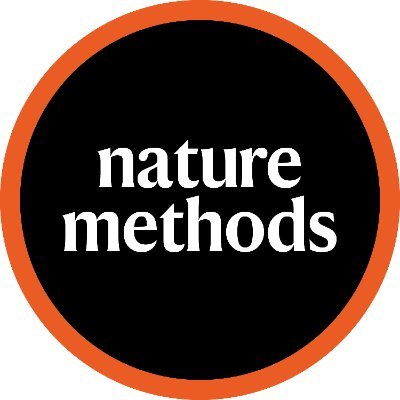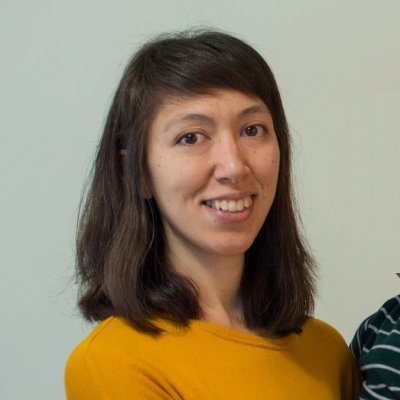
Ian Dardani
@IanDardani
Followers
207
Following
68
Media
6
Statuses
50
1/ Excited to share our preprint from @arjunrajlab on clampFISH 2.0: a method for rapid, multiplexed RNA imaging (e.g. 10 genes in 1 million cells in ~1.25 days) @pennbioeng
https://t.co/qZOJHhdvKy If you’ve done conventional single-molecule RNA FISH, you’ll know it is slow…
biorxiv.org
RNA labeling in situ has enormous potential to visualize transcripts and quantify their levels in single cells, but it remains challenging to produce high levels of signal while also enabling...
2
59
221
ClampFISH 2.0 enables highly specific multiplexed signal amplification in RNA FISH. @arjunrajlab @IanDardani @BenEmert @yogeshgoyallab @cojiberries @SRouhanifard @FaneMitchell @gretchen_alicea @HerlynLab @AshaniTW
https://t.co/0yio7px8AT
1
46
156
10/n Here is an overview plot (inspired by @adam_k_glaser ) showing my prototype #schmidtobjective in the context of currently available objectives:
1
5
37
I have been WAITING for this paper to come out! I know I say this a lot, but this is an absolute must read for those working in localization microscopy.
Ever wonder why nm localization precisions often don't translate to similar resolution below 10 nm? A paper from @LabSauer points to RET between fluorophores as a major factor. https://t.co/Xf1t0t8VWP and see the accompanying N&V from @LMoeckl
https://t.co/ewkeolkOXB
0
20
131
1/ Excited to share our preprint from @arjunrajlab on melanoma metastasis in clonal cells being driven by a rare early invading subpopulation.
biorxiv.org
Metastasis occurs when tumor cells leave the primary tumor site and disseminate to distal organs. Most cells remain in the primary tumor, however, the circumstances that allow certain cells to drive...
2
31
101
Do any other microscopy folks want something to deliver solutions to multiple wells (perhaps w. automation)? Thinking of this for in situ sequencing or cyclic RNA FISH. And what's your preferred format? - Ibidi 8-well - Lab-Tek I/II 8-well - Cellvis 6-well - others? Like this:
3
4
14
10/ and to @ian_mellis and @allycote for helpful input. And thank you to @sydshaffer, @BenEmert, and @yogeshgoyallab whose work on rare cancer cells inspired this high-throughput application!
0
0
1
9/ A big thank you to everyone who made this possible: @BenEmert, @yogeshgoyallab, @cojiberries, @AKamanpreet1, Jasmine Lee, @SRouhanifard, @gretchen_alicea, @FaneMitchell, Min Xiao, @HerlynLab, @AshaniTW, @arjunrajlab …
1
0
3
8/ And it works in tissue, where signal amplification is helpful to see the spots over the higher background levels (images also at 20X magnification):
1
0
2
7/ We used clampFISH 2.0 to probe genes expressed in only rare subsets of cancer cells associated with drug resistance. We imaged 10 genes in 1.3 million cells in 39hr of imaging time, enough to capture ~43k of these rare cells. Some 20X magnification images of 3 such cells:
1
0
2
6/ We know this b/c when we re-add the same readout probes after multiple cycles, we see the same spots (they also look the same after ~4 months in a fridge):
1
0
4
5/ to ‘circularize’ the probes, stably looping them around each other (like a chain). So we can quickly remove just the fluorescent readout probes (w/ formamide+heat) & add new ones that bind to different genes’ scaffolds while the scaffolds remain intact (no need to re-amplify)
1
0
2
4/ It’s built off previous work by @SRouhanifard, updated with much cheaper probes (w/ scalable synthesis), a faster protocol, and we validate a protocol for higher degrees of multiplexing. The multiplexing can be fast owing to the clampFISH scaffold, which uses click chemistry…
1
0
2
3/ With each new round of amplifier probes, the spots get exponentially brighter (we saw ~100-fold) until eventually you can see them at low (20X and 10X) magnification, where you capture a lot more cells in the field of view. And you can amplify for all genes at once (we did 10)
1
0
3
2/ The reason is that you can’t fit many dye molecules on an RNA, producing low signal that needs high-powered microscopy (small area/image) & long exposure times. Instead, we build an exponentially-growing DNA scaffold on each RNA, then put a lot of dye molecules on the scaffold
1
0
3
Excited to share my (first) first author preprint from @arjunrajlab + Twitterless Rajan Jain lab "Cell type determination for cardiac differentiation occurs soon after seeding of human induced pluripotent stem cells" https://t.co/1c9yx8QDrV
5
39
174





